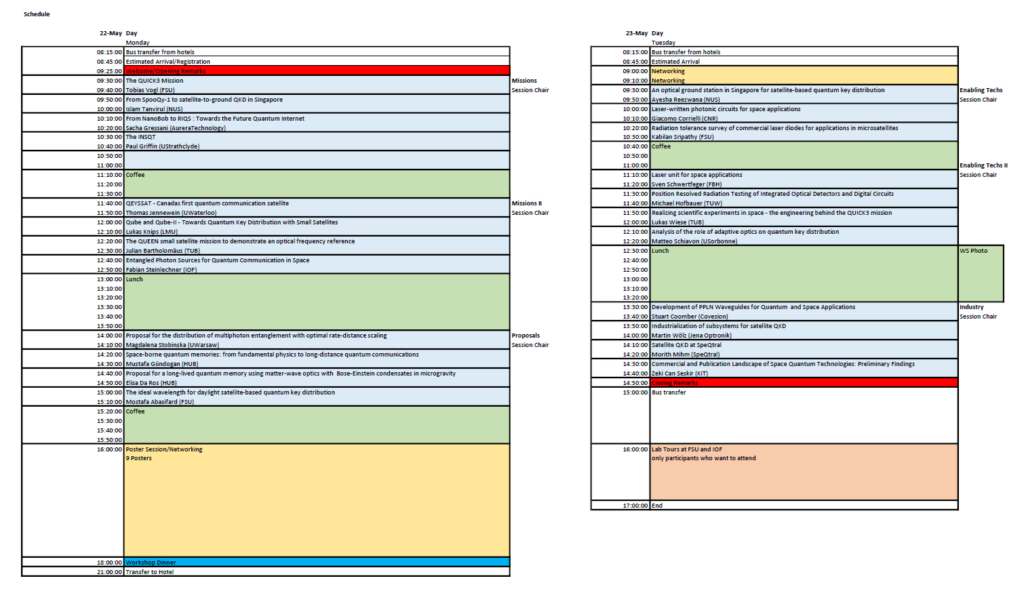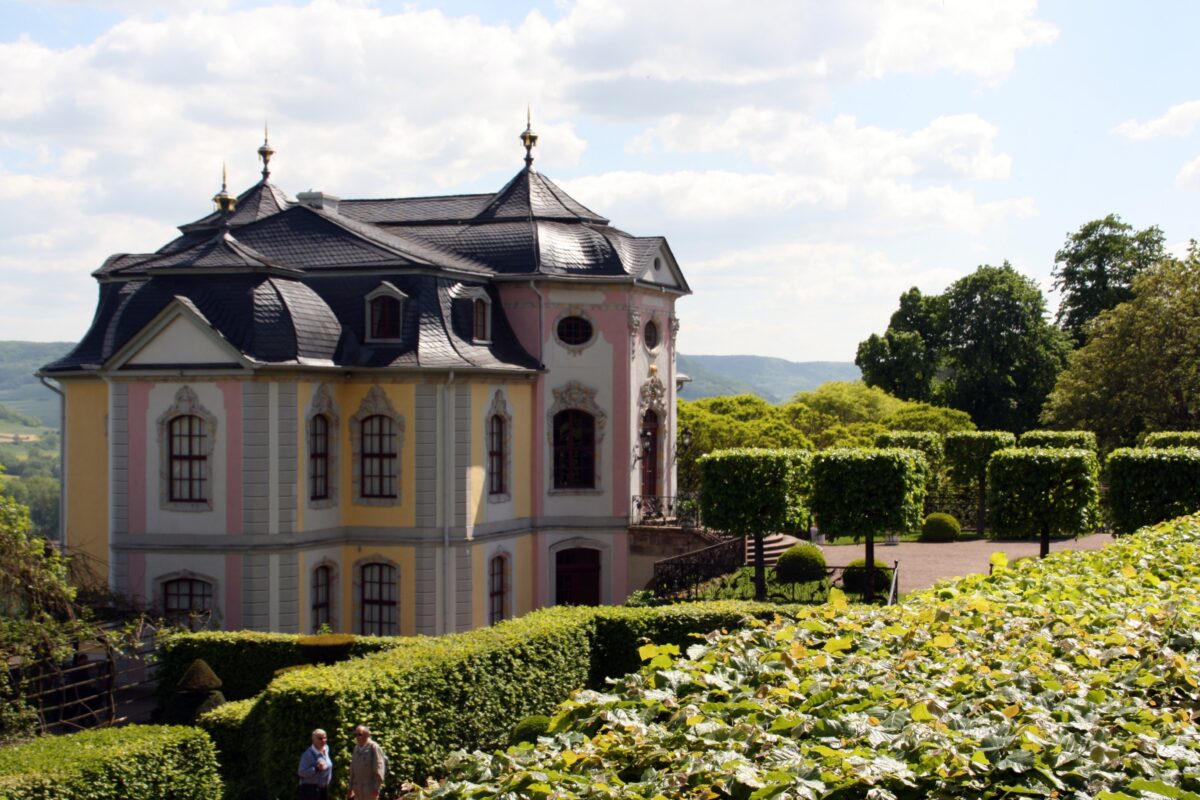Call for Papers
INSQT Workshop on current missions and component developments
Apply for attendance & respond to the call for papers here!
Abstract Due: 17th April 2023
Author Notification: 24th April 2023
Workshop dates: 22nd to 23rd May 2023
Venue: Dornburg Castle (near Jena, Germany). Accommodation included with bus transfer from the hotel in the Jena city center. Hosted by Friedrich Schiller University, Jena.
Modern quantum technologies have started to transition from laboratory proof-of-concepts to commercial applications in the field such as sensing, timing, navigation, computation, and communication. The recent progress in quantum computing poses a threat to our classical communication infrastructure. Quantum communication promises an alternative method, where the security relies only fundamental physical laws instead of on computational complexity. Communication over long distances is technically challenging due to the exponential damping of optical quantum signals over fibers. A solution are satellite-mediated links as the scattering and absorption in the atmosphere becomes negligible above 10 km. A global quantum internet is likely going to be of hybrid nature, where metropolitan fiber networks are connected with satellite relay stations. To realize such network, components for satellites need to be developed and tested in realistic space scenarios.
Beyond quantum communication, also quantum sensing in space could enhance the field of earth observation, astronomy, and space science. Quantum clocks could enhance global synchronisation and improve navigation. Furthermore, these provide new ways of performing fundamental tests of physics.
Of particular interest, are small satellite missions, as they make the component development accessible to the large scientific quantum community. With lower costin and rapid development cycles coupled with increased access to space, space quantum technology development utilising such NewSpacwe approaches is extremely attractive.
In this workshop organized as part of the International Network for Space Quantum Technology (INSQT), we aim to focus on current missions and component developments. All aspects that are relevant to a small satellite mission are of interest for this workshop. This includes the presentation of ongoing and planned missions, as well as specific subsystems such as lasers, quantum light sources, detectors, light modulators, and enabling technologies. We also plan to have in-depth discussions and networking between the participants to leverage synergy effects between different missions as well as to identify challenges and questions that should be addressed by the community. The participation from students and members outside INSQT is strongly encouraged!
Organizing Comittee:
Tobias Vogl (Friedrich Schiller University, Jena)
Daniel Oi (University of Strathlyde)
Paul Griffin (University of Strathclyde)
Contributions (talk or poster) are welcome for the following (not exclusive) topics:
- Currently ongoing and planned missions
- Components I: quantum light sources
- Components II: detectors
- Components III: quantum memories
- Enabling technologies
- Industrial space quantum technologies
Document version available here.
Workshop Schedule
Document linked here for easier viewing/download

